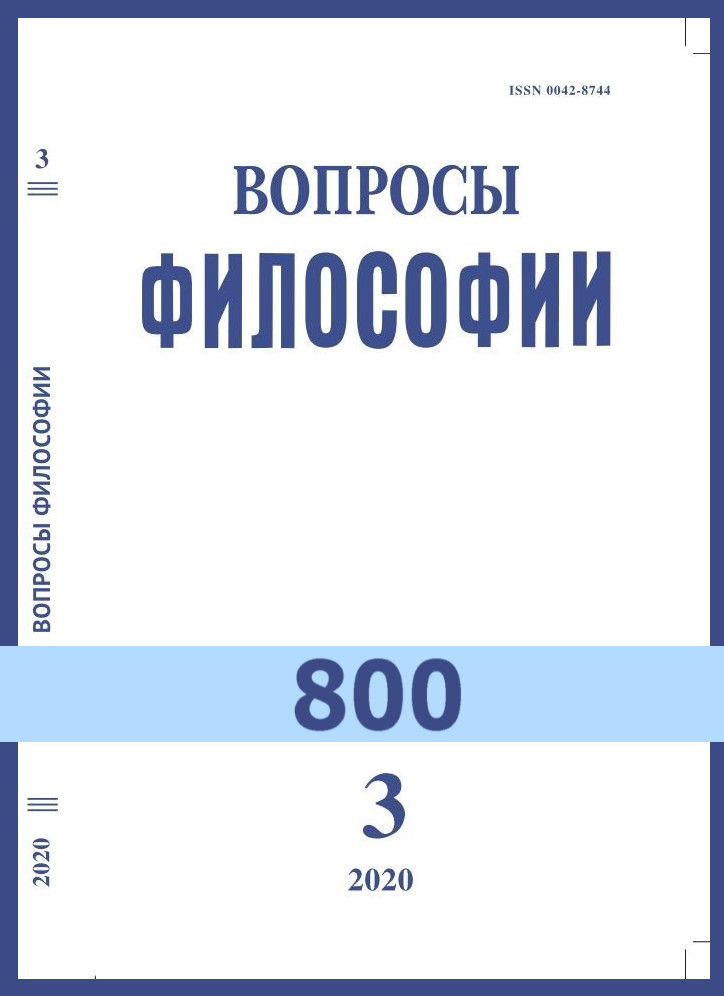On the Problem of Universal Values
DOI:
https://doi.org/10.21146/0042-8744-2020-3-25-41Keywords:
Man, activity, subject, object, consciousness, motivation, freedom of will, choice, needs, interests, values, goalsAbstract
The article is devoted to the analysis of universal values, which are understood as the motivational preferences inherent in all people, regardless of ethnic, social, professional, religious and other differences between them. Values are considered as the most important element of motivation, providing freedom of
choice of behavioral reactions to the tested cravings. Values determine the criteria for motivational choice, allowing to distinguish between “the best and the desired” for a person from the “worst and undesirable” for him. The basis of this choice is the objective goals of life (involving the preservation of its fact and / or
quality) and specifying their needs of the social person. The author identifies three levels of value motivation, the first of which are historically unchanged basic “values as goals”, which are based on reflection of need states, which takes into account the important difference between the satisfaction of a need and its
deprivation. The second level of value motivation is represented by historically changeable “optional values”, which is based on the reflection of need preferences – the ranking of needs, their division into primary and secondary, subject to and not to be satisfied. The third level of value motivation is represented by
historically variable “values as means”, which are based on the value preferences associated with the ranking of human interests, the choice of means and ways to meet needs.

